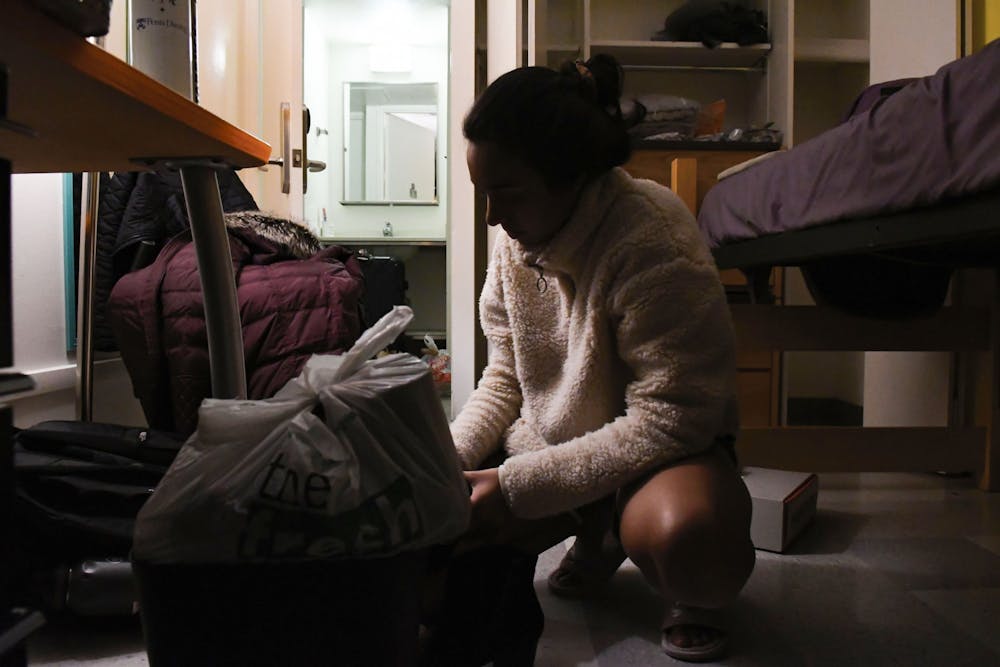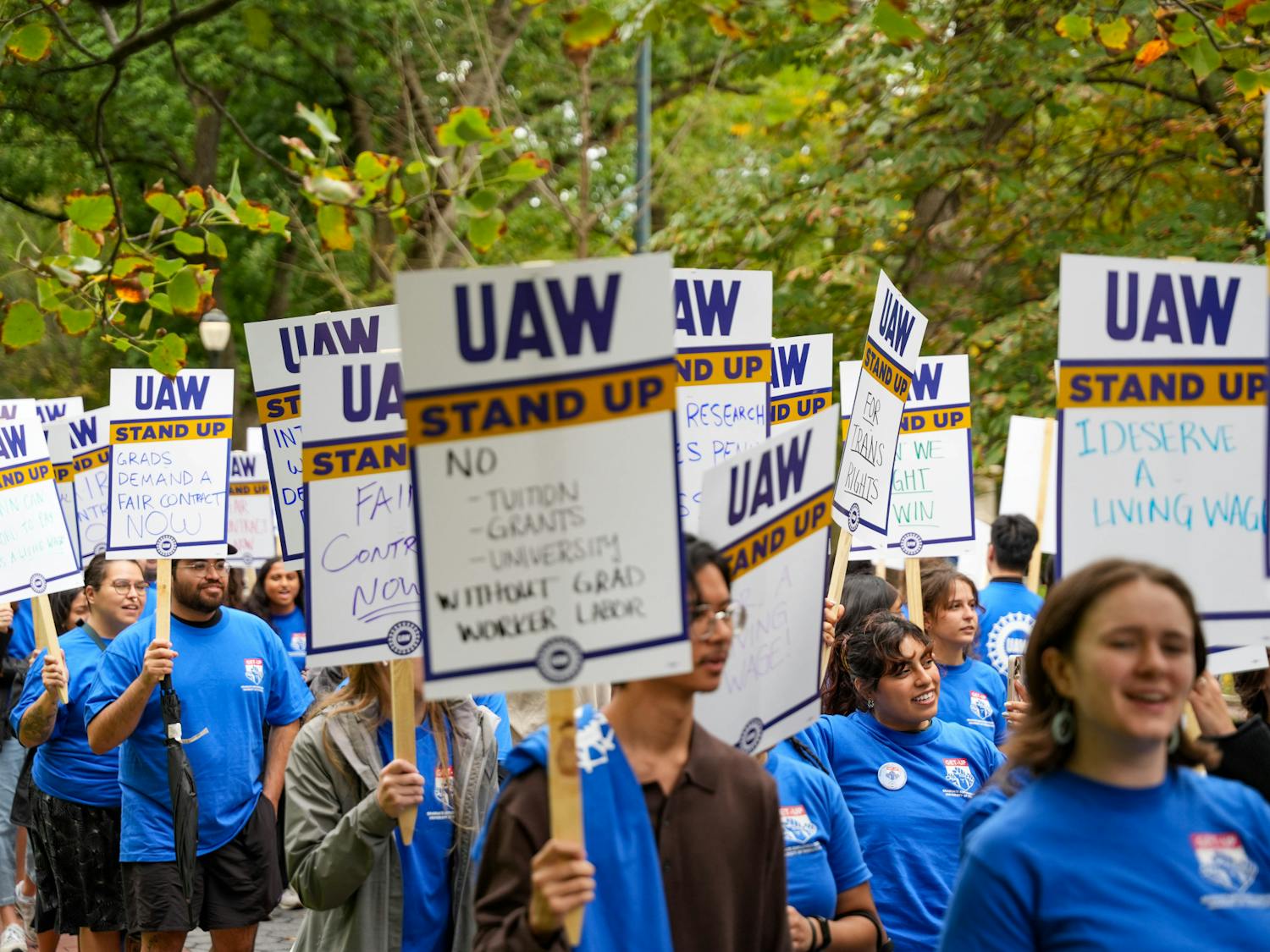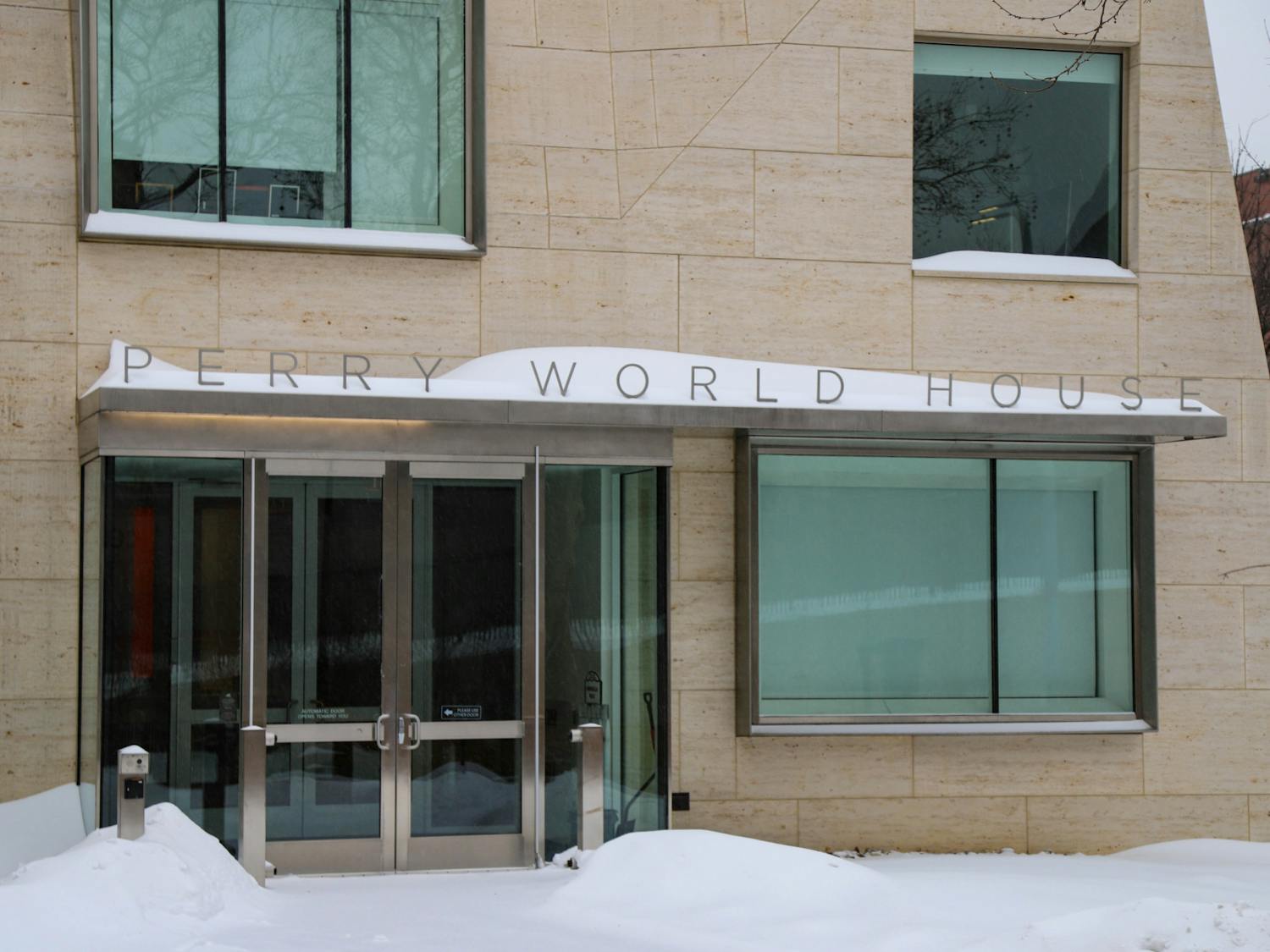Although Penn required students to leave their on-campus housing more than two weeks ago, about 450 managed to successfully apply to remain in their University housing.
Now, Penn is asking students to relocate to other dorms in an effort to consolidate resources. Penn sent emails to students still living on campus, either confirming that they could stay in their original College Houses, or asking them to move to a different building.
Director of Communications for Business Services Barbara Lea-Kruger confirmed in an email to The Daily Pennsylvanian that "17 students in Lauder, Hill, and the Quad" were ordered to move into the three high rises. The move occurred in order "to provide centralized services and give these students a private bedroom, bathroom and kitchen" as well as to "support better social distancing for these students."
According to another email from Lea-Kruger, approximately 450 students were approved to continue living on campus for the rest of the semester, while 721 were denied on-campus housing. Kruger said the majority of approved students were international graduate students living in Sansom Place East who could not return to their homes due to travel restrictions.
Engineering senior Eduardo Ortuño received an email on March 25 stating he could continue to live in his room in Harrison College House, but may be asked to relocate later in the semester, "depending on the University's needs." The email also informed Ortuño that other residents would soon be moving into Harrison as part of the University's consolidation attempts.
Ortuño said he wondered if the University has other motivations for consolidating students in the high rise area, like saving money.
"There’s definitely more details," he said. "Maybe [students' safety] is the main reason, but they didn’t go into detail for why it’s necessary."
Ortuño said there is a popular rumor circulating among students that dorms may be converted to help Penn Medicine deal with a potential surge in COVID-19 cases, but he does not have any supporting evidence. Other universities, such as New York University and Tufts University, have already offered to use evacuated dorms to house patients.
RELATED:
Philadelphia’s Homewood Suites by Hilton to offer free rooms to healthcare, safety workers
UA urges admin to push back pass/fail deadline and give timeline for housing, dining refund
Executive Director of Business Services Doug Berger denied Penn plans on opening up empty dorms to help combat the COVID-19 pandemic.
“We have no plans to convert college houses or rooms within college houses into facilities to treat COVID-19 patients," Berger wrote in an email to the DP.
A recent tweet from Penn Medicine professor Carolyn Cannuscio sparked rumors of newly emptied dorms being used to house COVID-19 patients.
"Update!" the tweet reads. "@penn will be repurposing dorms as isolation facilities. Quakers proud."
Cannuscio later clarified that the tweet was in response to conversations she had with colleagues who were looking into repurposing dorms. However, she said she does not know whether these plans were ever solidified or will be acted upon in the future.
Cannuscio added that the consolidation of on-campus students was likely to minimize staff exposure and the difficulty of dealing with potential outbreaks in the student population.
"It was probably a decision made proactively in anticipation of a lot of people getting sick and needing to minimize the number of different locations in which students had to be cared for," Cannuscio said.
The Philadelphia Inquirer reported that the Hospital of the University of Pennsylvania wants to set up hospital tents on Spruce Street Between 34th and and 36th streets, the border between Penn's campus and the hospital's complex. The article also said HUP is currently consulting with federal officials about closing off parts of Spruce street and using the Quad to set up hospital tents.
Lea-Kruger said she was not aware of any immediate plans to use the Quad for hospital tents.
University Communications did not respond to multiple requests for comment at the time of publication.









